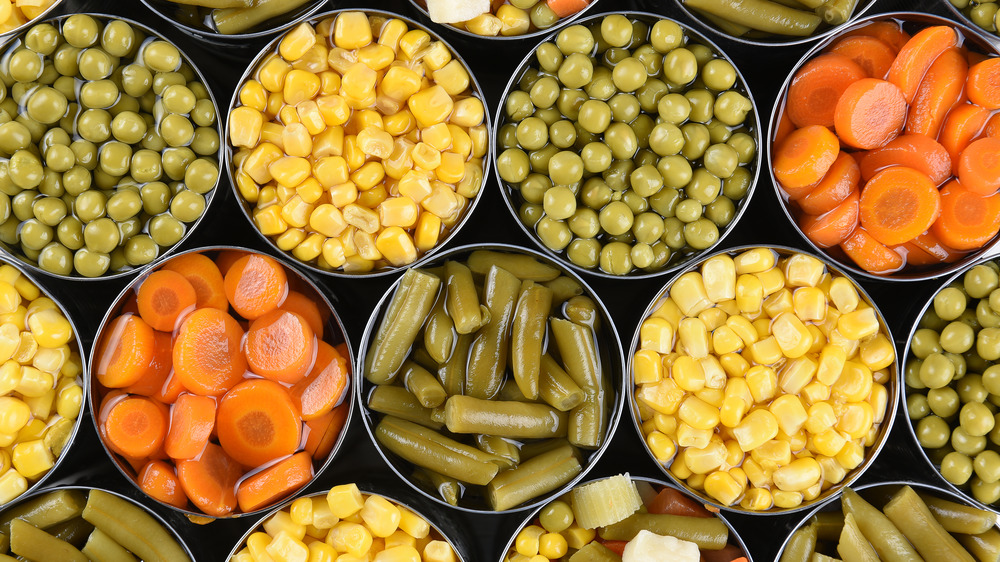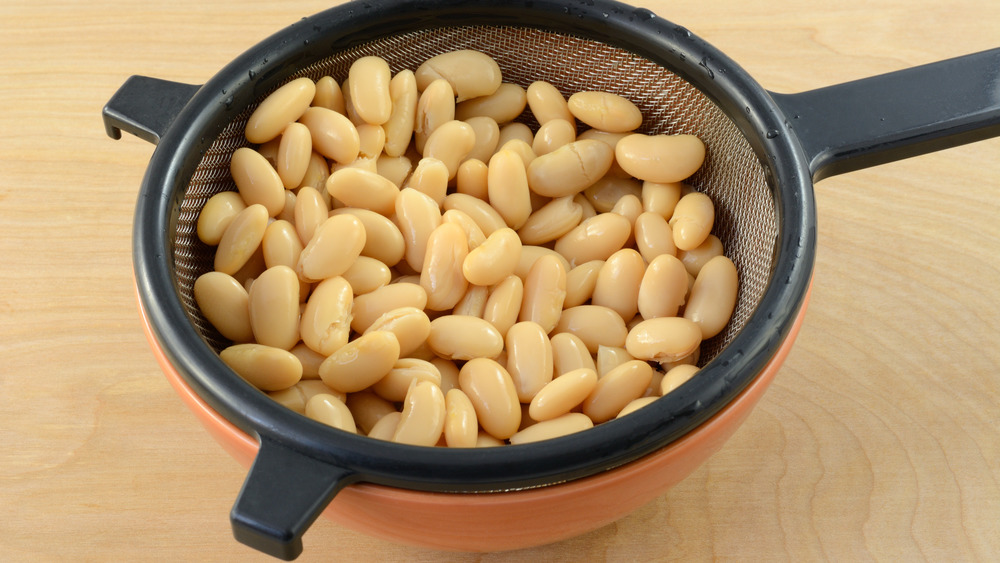You Should Always Rinse Canned Vegetables And Beans. Here's Why
It's pretty safe to assume your favorite savory indulgences like chips, pizza or fast food sandwiches are high in salt. What's not as obvious is the sodium content in foods that are billed as "healthy," like veggies and beans — especially when they're canned. Sodium is used in some foods (think jerky) to preserve them, but in canned goods, it's usually just to bring out the taste. According to the Institute of Medicine, "In canning, a liquid medium is important for heat transfer during processing, and a salt brine is generally used because salt enhances the consistency and flavor of vegetables."
An average American diet is very high in sodium, which can raise blood pressure, putting a strain on the heart, and increase your risk for osteoporosis, stroke, kidney disease, and stomach cancer (via Live Science) And sodium levels in canned veggies and beans can be surprisingly high — one serving from a can of Del Monte Whole Kernel Corn, a half-cup contains 320 mg of sodium, or 13 percent of your daily intake (via Del Monte). A half-cup of Bush's black beans can pack 20 percent of your daily recommended intake (via Bush's Best). Luckily, there are ways to reduce that sodium intake, and rinsing canned veggies is one of them.
Ways to reduce your sodium intake from canned goods
It may be worth it to give a quick rinse to the contents of your cans, which can be an inexpensive and convenient way to pack veggies into your diet (via the Kitchn and USDA). The USDA's Beltsville Human Nutrition Research Center, part of the Nutrient Data Laboratory, conducted a study on the draining and rinsing of canned goods and how it affected sodium and nutrient content. They drained and rinsed canned corn, green beans, and peas, and found that the process reduced sodium by anywhere from 9-23 percent. Unfortunately, the veggies also lost some nutrients, like Vitamin C, by anywhere from 6-21 percent — but for the price of a few minutes, we'll take a portion of corn with 162 mg of sodium over one with 205 mg any day.
Of course, there are other ways to limit your sodium. When it comes to canned goods, look for "low-sodium" or "no salt added" varieties. A "reduced sodium" label might not mean a huge reduction in salt, but anything helps. You can even rinse your low-sodium canned goods for bonus health points. Opt for fresh or frozen vegetables if you have the cash (via the Boston Globe), or cook inexpensive dried beans and chickpeas (via SF Gate). Cut back on other processed foods that may pack a hidden sodium punch, like soups, breads, deli meats, pizza, sandwiches and burritos, and tacos — the "salty six," according to the American Heart Association.

